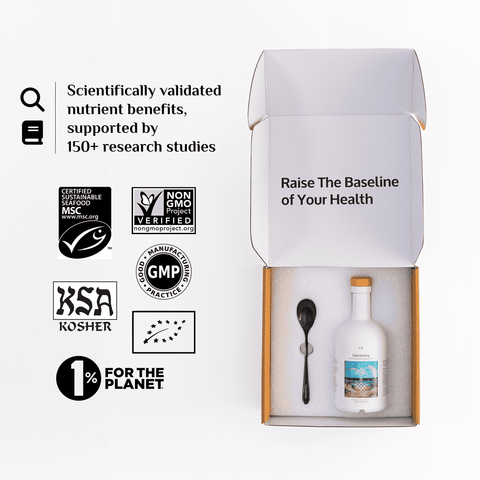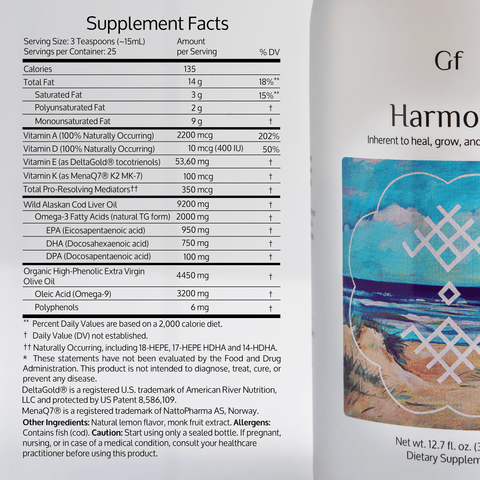Menopause isn't just about hot flashes and mood swings. Many women experience the frustrating mental cloudiness known as brain fog during this transition. While hormonal shifts play a major role, emerging research suggests omega-3 fatty acids could offer a natural helping hand.
Why Does Menopause Mess with Your Mind?
- Estrogen's Decline: Estrogen isn't just a reproductive hormone – it critically influences brain function. Declining estrogen levels can impact focus, memory, and mental clarity. [1]
- Inflammation Increase: Menopause can lead to increased inflammation throughout the body, including the brain, which contributes to brain fog. [2]
- Sleep Disruptions: Hot flashes, night sweats, and other menopause symptoms often cause poor sleep, leaving your brain feeling sluggish.
How Omega-3s Can Help
Omega-3s, particularly EPA and DHA, offer potential benefits for battling menopause-related brain fog:
- Inflammation Fighters: Omega-3s have powerful anti-inflammatory effects, helping to quiet the brain inflammation that can worsen cognitive function. [3]
- Mood Stabilizers: Studies suggest omega-3s might help improve mood and reduce anxiety, which often accompany brain fog during menopause. [4]
- Brain Cell Protectors: Omega-3s are essential for brain cell health, potentially offering some defense against the mental decline sometimes associated with menopause. [5]
Boosting Your Omega-3 Intake
- Food First: Aim for 2-3 servings per week of fatty fish like salmon, tuna, and sardines.
- Supplements to the Rescue: If you dislike fish or struggle to eat enough, a high-quality omega-3 supplement like Harmony™ by Gf can be an excellent tool. Harmony™ enables a synergy between omega-3, vitamins A, D, E, K and olive polyphenols that results in more profound benefits of these nutrients.
- Talk to Your Doctor: They can guide you on the optimal omega-3 approach for your individual needs, particularly if you are taking any medications.
Omega-3s: One Piece of the Menopause Puzzle
While omega-3s won't magically erase all menopause- related brain fog, they are a smart addition to your overall wellness strategy. Combine them with healthy sleep habits, stress management, and regular exercise for maximum brain-boosting benefits.
References
- [1] Sherwin, B. B. (2003). Estrogen and cognitive functioning in women. Endocrine reviews, 24(2), 133-151.
- [2] Whitaker, A., Lajoie, A. S., Whitmore, C., & Bader, G. (2023). Exploring the Association between Menopause and Inflammation: A Scoping Review. International Journal of Environmental Research and Public Health, 20(1), 704.
- [3] Liu, Y., Wu, Y., Geng, Y., Zhao, J., & Han, B. (2017). Omega-3 polyunsaturated fatty acids for depression: A meta-analysis of randomized controlled trials. Nutritional neuroscience, 20(7), 585-594.
- [4] Grosso, G., Galvano, F., Marventano, S., Malaguarnera, M., Bucolo, C., Drago, F., & Caraci, F. (2014). Omega-3 fatty acids and depression: scientific evidence and biological mechanisms. Oxidative medicine and cellular longevity, 2014, 313570. https://doi.org/10.1155/2014/313570
- [5] Morris, M. C., Evans, D. A., Bienias, J. L., Tangney, C. C., Bennett, D. A., Aggarwal, N., & Wilson, R. S. (2005). Dietary fats and the risk of incident Alzheimer disease. Archives of neurology, 62(2), 154-160.
Disclaimer: This article is for informational purposes only and should not be taken as medical advice. Always consult with a healthcare professional before starting supplements or making major dietary changes.









